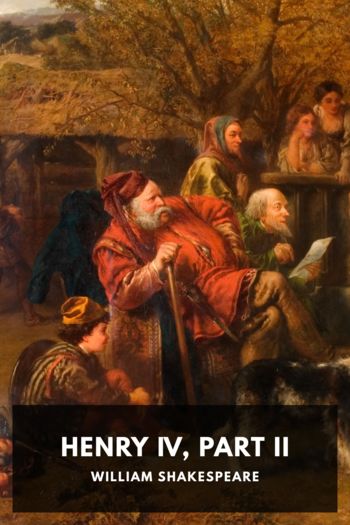Hot Stew by Fiona Mozley (feel good books .TXT) 📗

- Author: Fiona Mozley
Book online «Hot Stew by Fiona Mozley (feel good books .TXT) 📗». Author Fiona Mozley
Robert Kerr has known the woman some people call Debbie McGee for many years. He knew her before she came to be called Debbie McGee, when she was known by her real name. He knew her before she met the man with whom she now walks the streets, before her bones dried and fractured and were set in casts by concerned nurses, before her skin withered, before she pierced it with blunted needles, before she slept curled up between strange men. Robert looks at her now and sees all the many changing seasons that have passed. He sees rain and wind. He sees months of creeping sickness. He sees moments of giddy health. He sees poverty and fortune. He sees terror and hunger and pain and hope. He sees time as she stands still.
In the same pocket of his jeans from which he plucked the fifty-pence piece, Robert finds a twenty-pound note. He unpicks the folds with the care of a pastry chef for fine filo and holds it out. It flutters in the breeze like a handkerchief at a passing train.
“Don’t spend it all on smack,” he says to her. “Get yourself some chips or something. And a decent place to sleep.”
The woman they call Debbie McGee does not meet the old man’s eyes but focuses instead on the note. She takes it in her right hand and tucks it into the sleeve of her T-shirt, too tight even for her slight frame.
Across the road, Paul Daniels weeps and swears and stamps. He throws up his arms and screams at the sky. Phlegm and spit fly from his mouth. He pays no attention to the location of his companion, nor does he look behind to see if she follows as he zigzags down the street, pushing pedestrians out of his way, causing black cabs to swerve and stop.
Debbie McGee does follow. She keeps to the sides of the pavements where the tall buildings cast shade, and where chewing gum and half-eaten burgers, and the butts of cigarettes are thrown, and where dogs and drunks defecate and piss.
The woman they call Debbie McGee keeps pace with her beloved. Robert Kerr watches her go.
Familiar Streets
Robert doesn’t return inside to finish his pint. It is a hot day and he and Lorenzo have been drinking cold lager, which will now be warm. He looks into the pub and sees his pal speaking animatedly with the bartender, presumably about what has just happened. Robert hopes he hasn’t embarrassed him. He did what needed doing but didn’t mean to cause a scene.
Sheila begins to sweep the pavement with a coarse wooden-handled brush. Robert feels sure he must have annoyed her, but as she shuffles toward him she smiles. He thinks then, as he often does whenever he sees Sheila or any woman he considers good and kind and honest but for whom he feels no sexual desire, that he ought to marry her. But the moment passes, as it always does, and he thinks anyway she is probably in a relationship with the other lady bouncer at the lesbian bar around the corner.
Robert walks south. He glances at his watch: six o’clock. He wonders if it is late enough to visit the other place at which he is considered a regular. It will be open, but it might be too early for that kind of thing. He slows, and looks in at some of the shops and restaurants along the route. He passes private members’ clubs with grand old doors leading to dark corners and deep armchairs. He passes restaurants and cafes and shops that sell oysters and noodles and sashimi and frozen yogurt. On the corner, a sex shop displays lurid butt plugs and leather thongs. In the window, the management have hung an A1-size poster of two men kissing. Their bodies are tanned and waxed and lightly oiled. They are both wearing tight fluorescent swimming trunks. One of the men is clean shaven but the other has a neatly groomed beard. This confuses Robert. He knows from Lorenzo that these sorts of men would generally be described as “Hunks,” owing to their height and tight muscles. However, the presence of the beard indicates the category “Bear,” to which Lorenzo enjoys informing Robert that he, Robert, would belong if he were a gay man. The man on the poster muddles these categories. Robert walks on past the sex shop pondering, from the information he’s been given, how Lorenzo might be defined. But Robert can’t remember. Lorenzo is just Lorenzo.
Robert passes Des Sables and turns left. The shaded alley down which he slides brims with birds. Pigeons pluck the crumbs of Cornish pasties from between the slats of cast-iron grates and mutter to each other as they apportion scraps. A hen pigeon drags a gammy foot as she is pursued by two cocks. They hock flattering remarks but she remains uninterested and continues to hop. She tears her malnourished body into the air with lean but powerful wings and settles on a windowsill, squeezing easily behind the contra-avian spikes. The cock pigeons coo to one another as if disputing whether to pursue, then collectively decide to sate their hunger rather than their lust and return to the business of pecking. Further down the alley, there is a pigeon so white it is almost a dove. Its snowy wings are marred only by an irregular flight feather of dust and coral that hangs aslant as if aware of its own deviance. Beyond the pigeons, a flock of sparrows. Too few, too few. When





Comments (0)